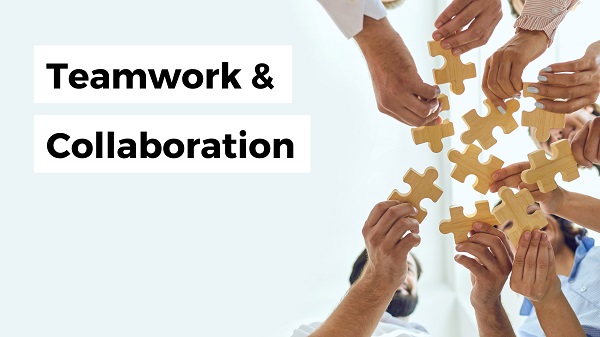Workplaces contain all sorts of personalities. The outgoing socialite who talks a lot in every meeting and always has a boisterous energy. The shy introvert prefers to work alone and go about their business quietly without drawing anyone’s attention. Then there are those who fall somewhere in the middle. With all of these different personalities on the same team, how can you ensure team members collaborate successfully?
Far from being a problem, team diversity is an asset — provided team members work toward a common goal and have the tools they need. While getting a diverse team in sync is a challenge, their varied perspectives can lead to innovation and creative problem-solving. So although it takes time and dedication to build collaboration, the results are worth it. Here are a few ways to get the ball rolling.
Contents
1. Align the Team Around Organizational Goals
When it comes to facilitating collaboration among varied personalities, it’s hard to overstate the importance of aligning around goals. Knowing what you’re working toward can help employees and leaders alike. Everyone is in the loop on what’s required, who should be doing what, and the tasks or projects to prioritize.
Leaders should find succinct, memorable ways to highlight the organization’s goals. A visual display like a poster may be helpful for in-person workplaces. In a virtual work environment, consider creating a landing page or other digital asset to thoroughly explain the organization’s objectives. Whenever possible, leaders should identify the goals most relevant to their team in particular and provide current examples. A project to add a self-service portal to your company website, say, could exemplify the goal of becoming your industry’s customer experience leader.
Employee engagement improves when employees know how their work fits into the larger picture. And engaged employees make more productive, effective collaborators. So the extra time you dedicate to clearly explaining goals can go a long way toward jump-starting collaboration in your workplace.
2. Provide Helpful Tools
Having the right tools available for your team is vital to successful collaboration. This is even more the case if you’re not all in the same room collaborating at once. Of course, basic facilitators like videoconferencing apps and instant messaging platforms are de rigueur. When determining what other tools to implement, be guided by the nature of your team’s tasks and what your business is working toward.
An advertising agency might require digital whiteboards to fuel its creative team’s brainstorming efforts. It will also need a robust CRM for client management. A team of accountants will obviously have different requirements. While they’ll likewise need a tool for managing client relationships, their bookkeeping, reporting, and compliance tasks demand robust accounting software. Assess your team, goals, and needs to help determine which tools to invest in.
No matter which tools you adopt, they must be functional and user-friendly. Provide thorough training to employees who are unfamiliar with a particular tool. Document best practices to ensure consistent tool use. All of this preparation can help to create a more successful and collaborative work environment.
3. Eliminate Roadblocks
Have you ever had a stellar idea that you were really excited to implement at work? You and your teammates spent countless hours researching, developing, and preparing for it to launch. That is until it got derailed by a shift in management priorities or fell victim to budget cuts. Those unfortunately common roadblocks probably didn’t make you love your job more than you did before.
To help your team collaborate successfully, you must prevent their ideas from being impeded by factors outside of their control. As a conduit to senior management, you can ensure that high-level priorities are communicated clearly. When your team knows which deliverables take precedence, they can avoid frustrating delays and rework. You can also work to make sure your team has the resources they need to bring projects to fruition.
While no leader can completely eliminate every single roadblock, it’s important to put forth a visible effort. Actively listening to your team and their concerns will help you identify which barriers need your most focused attention. Even acknowledging the hindrances that are immovable can do much to reduce your team’s frustrations. You can’t resolve everything, but your attempts to smooth your team’s way will instill confidence in your leadership and facilitate your team’s collaboration.
4. Invest in Team Building
As far as soft skills go, collaboration is immensely important in the working world. In nearly any profession you can name, people have to rely on co-workers to get their work done successfully. Yet as crucial a skill as collaboration is, it is rarely taught.
Level up your team’s collaborative capabilities by investing in team-building activities and training opportunities. Focus on encouraging group work and hold problem-solving sessions to troubleshoot issues you’re facing. Cultivate an environment that’s supportive and respectful of every team member and their ideas.
It’s important to show your team how important collaboration is. And what better way to do that than by investing time, effort, and resources into helping them flex that muscle? When you bring together diverse perspectives in an atmosphere of sharing and mutual respect, the results can be more innovative than you thought possible.
Up Next: Effective Collaboration
Two (or more) brains are most certainly better than one. But you’ll never know the full potential of the people on your team unless you empower them to work together effectively. By implementing the strategies above, you and your team will be well on your way to working more collaboratively.

